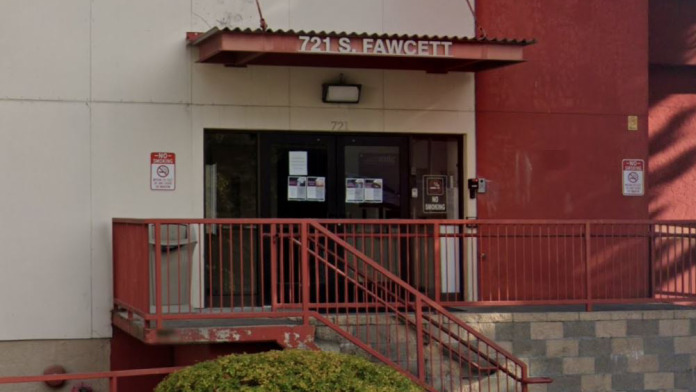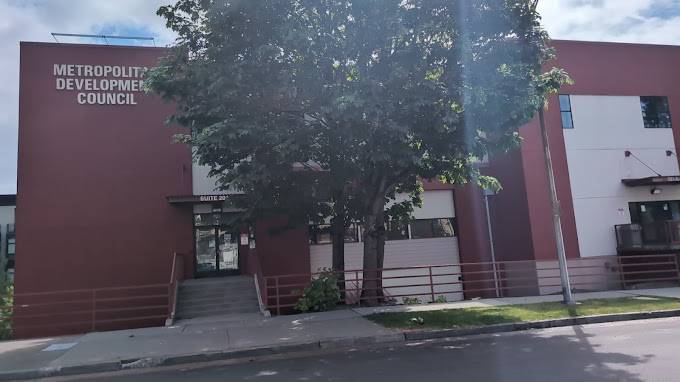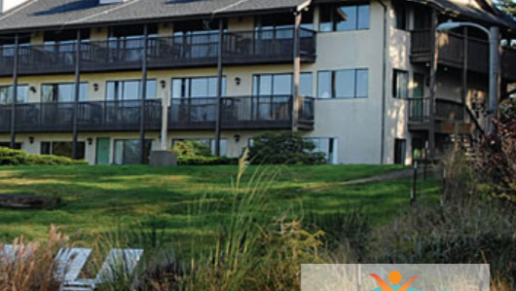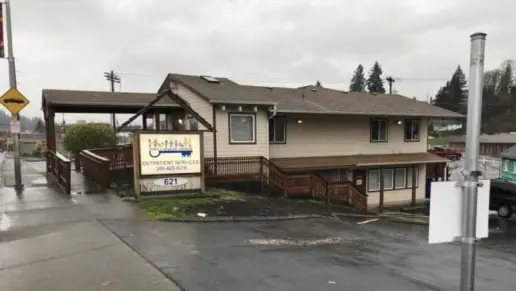The best place to ask for help and to get professional answers and treatments! This place is incredible! I would recommend it 1000%
About Metropolitan Development Council
Are you struggling with behavioral health issues, addiction, or any co-occurring mental health struggles? Metropolitan Development Council (MDC) in Tacoma, Washington offers medical detox and intensive outpatient programs as well as recovery support and various other services to help you overcome substance use disorder and/or mental health issues.
I really like that the MDC detox program accepts walk ins at any time, 24/7. No matter when you decide you need help, they are there to get the process started. They monitor you during the length of your stay in detox providing medications, healthy meals and counseling to help you prepare for the next stage of treatment.
The Fawcett Ave location also has intensive outpatient programs (IOPs) and general outpatient programs to treat addiction or co occurring substance use and mental health disorders. They can help you with skill building and mindful based relapse prevention along with the usual individual and group therapy.
Clients at the MDC Center get personalized discharge plans tailored to their needs. This process connects them with additional resources like housing assistance, supportive job programs and financial help. They help clients to get access to essential support systems.
Another thing that stood out to me is the way that they support youth and adult education. Youth education programs help high school students prepare college and a career after graduation, providing guidance around applications, financial aid, career advising and more. These programs take place in local schools so all students have access. Adult learners can also get help with college admission and financial forms at the Mobile Success Hub and the Educational Opportunity Center. The EOC offers virtual services as well, making it easy to access for everyone.
Latest Reviews
Rehab Score
Gallery


Location
Accepted Insurance
Other Forms of Payment
Self-pay involves paying for treatment out of your own pocket. You can use savings or credit, get a personal loan, or receive help from family and friends to fund your treatment. If you don't have insurance or your insurance plan doesn't cover a specific program, self-pay can help ensure you still get the care you need.
Private insurance refers to any kind of healthcare coverage that isn't from the state or federal government. This includes individual and family plans offered by an employer or purchased from the Insurance Marketplace. Every plan will have different requirements and out of pocket costs so be sure to get the full details before you start treatment.
Sliding scale payments are based on a client's income and family size. The goal is to make treatment affordable to everyone. By taking these factors into account, addiction recovery care providers help ensure that your treatment does not become a financial burden to you or your family, eliminating one barrier to care.
Medicaid is a state based program that helps lower-income individuals and families pay for healthcare. Medicaid covers addiction treatment so those enrolled can use their coverage to pay for rehab. When a program accepts Medicaid the client often pays very little or nothing out of their own pocket.
Addiction Treatments
Levels of Care
Treatments
The goal of treatment for alcoholism is abstinence. Those with poor social support, poor motivation, or psychiatric disorders tend to relapse within a few years of treatment. For these people, success is measured by longer periods of abstinence, reduced use of alcohol, better health, and improved social functioning. Recovery and Maintenance are usually based on 12 step programs and AA meetings.
Effective drug rehab in Washington integrates care for the whole person, offering comprehensive solutions to addiction. Treatment methods address mental, physical, and relational aspects of substance abuse.
Many of those suffering from addiction also suffer from mental or emotional illnesses like schizophrenia, bipolar disorder, depression, or anxiety disorders. Rehab and other substance abuse facilities treating those with a dual diagnosis or co-occurring disorder administer psychiatric treatment to address the person's mental health issue in addition to drug and alcohol rehabilitation.
A combined mental health and substance abuse rehab has the staff and resources available to handle individuals with both mental health and substance abuse issues. It can be challenging to determine where a specific symptom stems from (a mental health issue or an issue related to substance abuse), so mental health and substance abuse professionals are helpful in detangling symptoms and keeping treatment on track.
Opioid rehabs specialize in supporting those recovering from opioid addiction. They treat those suffering from addiction to illegal opioids like heroin, as well as prescription drugs like oxycodone. These centers typically combine both physical as well as mental and emotional support to help stop addiction. Physical support often includes medical detox and subsequent medical support (including medication), and mental support includes in-depth therapy to address the underlying causes of addiction.
Programs


Clinical Services
Research clearly demonstrates that recovery is far more successful and sustainable when loved ones like family members participate in rehab and substance abuse treatment. Genetic factors may be at play when it comes to drug and alcohol addiction, as well as mental health issues. Family dynamics often play a critical role in addiction triggers, and if properly educated, family members can be a strong source of support when it comes to rehabilitation.
Group therapy is any therapeutic work that happens in a group (not one-on-one). There are a number of different group therapy modalities, including support groups, experiential therapy, psycho-education, and more. Group therapy involves treatment as well as processing interaction between group members.
In individual therapy, a patient meets one-on-one with a trained psychologist or counselor. Therapy is a pivotal part of effective substance abuse treatment, as it often covers root causes of addiction, including challenges faced by the patient in their social, family, and work/school life.
Trauma therapy addresses traumatic incidents from a client's past that are likely affecting their present-day experience. Trauma is often one of the primary triggers and potential causes of addiction, and can stem from child sexual abuse, domestic violence, having a parent with a mental illness, losing one or both parents at a young age, teenage or adult sexual assault, or any number of other factors. The purpose of trauma therapy is to allow a patient to process trauma and move through and past it, with the help of trained and compassionate mental health professionals.
Staff

CEO

Director of Development

Senior Director of Housing and Behavioral Healthcare

Information Technology Director

Director of Community Services

Director of Education & Employment

Chair,BOD

Vice Chair, BOD
Contact Information
721 Fawcett Ave
#204
Tacoma, WA 98402














